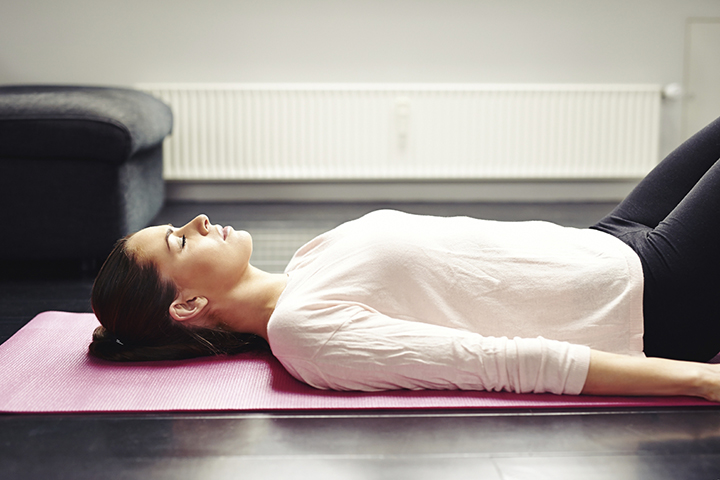All Age Care Tips For Vagina Health
Vagina health is extremely important for women. There are some rules to protect your vagina health. As we get older, many things change in our body. Many things differ from secreted hormones to the functioning of organs. As everything changes with age, your vagina also changes. Pelvic floor strength, vagina flora, and more are different. Therefore, it is important to know how to protect the health of your vagina according to your age. We wrote how your vagina changes throughout your life and what you can do to keep it in top condition. Here’s what you need to do for your vagina health from the 20s to the 50s.
1. 20s: An extremely strong pelvic floor
20s are usually the ages when women are more sexually active. Therefore, at this age; Factors such as sex, birth control methods, pregnancy and childbirth can affect vagina health. Even though there is an increase in the average age, especially when it comes to having children, 20s can be better times to get pregnant. Because your vagina is stronger at this age. According to experts, what you need to pay attention to about vagina health in 20s is as follows;
– Since your hormones work well at this age, estrogen, testosterone and progesterone production are at the highest level. This helps maintain the natural flora of your vagina. Thus, you will be more resistant to bacteria.
– It is absolutely not right to apply chemical scented products to the vagina. This can disrupt the pH and acid balance in your vagina and invite diseases. For this reason, you should not use scented products.
– At this age, you will not have any slipperiness during the relationship. However, the use of birth control pills can affect your wetness. Therefore, if you want to use a lubricant, you should choose a product that will not degrade the pH of your vagina.
However, if you are sexually active, make sure to use condoms to protect yourself from sexually transmitted diseases.
Pelvic floor muscles are usually strong in their 20s. In some cases, however, these muscles can be very strong, which can cause you to experience pain during intercourse. In such a situation, you should consult a doctor.
– It is beneficial to have regular gynecological examination from the moment you start to be sexually active.
2.30s: Kegel exercise is a must
We have said that the release of hormones changes according to ages. In the 30s, due to hormones, the labia minora (inner lip) may darken. This is perfectly normal. On the other hand, you can start experiencing premenopause, which is not common, in your 30s, the process leading to menopause. Experts recommend the following for health of vagina in their 30s;
– Your vagina may lose its elastic texture with age.
– Experts say that the most important change is at the pelvic floor. There may be a decrease in pelvic floor strength. Since the pelvic muscles support the bladder, uterus and intestines, problems such as urinary incontinence (especially when sneezing, coughing, or laughing) can occur. A feeling of heaviness may occur in the vagina. Vaginal delivery can intensify these symptoms.
– It is of great importance to exercise and strengthen the pelvic muscles by performing kegel exercises to prevent the pelvic floor from losing power.
The 30s are the ages when your libido is high like the 20s. However, if you are experiencing dryness in the vagina for reasons such as premenopause, you can ask your doctor for estrogen vaginal cream.
– As the age gets older, many problems can arise. You should definitely have a smear test once a year, especially if you have had your first sexual experience at an early age and have been mate for a while.
3. 40s: ideal time for more active sexuality
According to research, women most commonly go through menopause between the ages of 45 and 50. However, mostly at these ages, premenopause, that is, the period before menopause begins to occur. According to experts, this process takes 4 years. Of course, some changes occur in the vagina in the 40s. Experts list these changes and ways to maintain vagina health;
– Lowering the level of estrogen in the body leads to decreased blood flow to the vagina and vulva, less collagen in the vulva tissue and changes in the vaginal pH. The walls of your vagina become thinner and drier. This is called vaginal atrophy. This can cause problems such as burning, redness, and pain in sexual intercourse.
– For dryness, you can get a lubricant recommendation from your doctor. However, the best way to overcome this situation is an active and regular sexual life.
– To strengthen your pelvic floor, you can do exercises like pilates.
– Since there is thinning of the vulva tissue, it is beneficial at this age to avoid tough treatments and waxing.
– Physically, your body may not be the same as in your 20s, but you can still be sexually stimulated and continue an active sex life. On the other hand, even if you go through menopause, you have a chance to have a child.
– In your 40s, you can use probiotics and flora regulating drugs that support your vagina health.
4. 50s and beyond: Wisdom that comes with age
In your 50s, your estrogen level will decrease because you are probably going through menopause. Menopause changes can cause pubic hair to be sparse and gray. In addition, the vulva, vagina, and cervix may also be smaller, pale, and the skin may become thinner as estrogen levels continue to decline. At this age, what you can do for vagina health is as follows;
– You can use drugs such as vaginal estrogen.
– Since the pH level of your vagina will change, there is an increased risk of bacterial infection. Vaginal hormone therapy can be used to minimize this risk.
– Decreased estrogen level can cause dryness in the vagina. This can cause pain in sexual intercourse. In this case, you can ask your doctor for a lubricant.
– Your pelvic floor strength may decrease, but now that you know your body better, you can give it what it needs



Comments